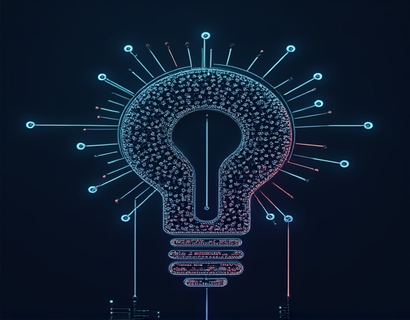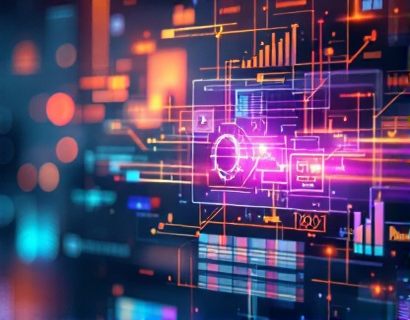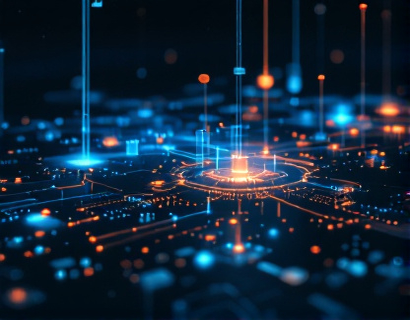AI Chat Interfaces: Revolutionizing Access to Legal Insights and Services
The legal landscape has long been perceived as complex and inaccessible to those without specialized training. However, advancements in artificial intelligence (AI) are transforming how individuals and businesses interact with legal systems. AI-driven chat interfaces, in particular, have emerged as powerful tools for democratizing legal knowledge, connecting users with professionals, and simplifying decision-making processes. This article explores the role of AI chat interfaces in modern legaltech, their benefits, and their implications for the future of legal services.
Understanding AI Chat Interfaces in Legal Contexts
AI chat interfaces are software applications that use natural language processing (NLP) and machine learning to simulate human-like conversations. In legal settings, these tools analyze user queries, interpret legal terminology, and provide contextually relevant responses. Unlike traditional search engines, which return lists of links, AI chat systems synthesize information from vast databases of legal documents, case law, and regulatory guidelines to deliver concise answers.
These systems leverage large language models trained on legal corpora, enabling them to understand nuances in questions about contracts, intellectual property, family law, and other specialized areas. By processing user inputs through layered algorithms, they can identify underlying concerns and offer tailored guidance while maintaining compliance with jurisdictional variations.
Key Features of Legal AI Chat Systems
Real-Time Legal Information Retrieval
Modern AI interfaces provide instant access to up-to-date legal information, including recent court rulings, legislative changes, and regulatory updates. This capability helps users stay informed about developments that may affect their personal or business matters without requiring hours of independent research.
Document Analysis and Generation
Many platforms integrate document review features that analyze contracts, non-disclosure agreements, or lease documents for potential issues. Some systems can generate basic legal templates, reducing the time and cost associated with drafting standard agreements while ensuring compliance with current laws.
Risk Assessment Tools
Advanced systems evaluate the potential legal risks associated with specific actions or decisions. For instance, a user considering a business partnership might receive insights about liability considerations, intellectual property protections, and compliance requirements based on their industry and location.
Bridging the Gap Between Users and Legal Professionals
One of the most significant advantages of AI chat interfaces is their ability to connect users with appropriate legal professionals. When a situation requires human expertise, these systems analyze multiple factors to suggest suitable matches:
- Practice area specialization
- Geographic jurisdiction
- Case complexity
- Budget considerations
- Attorney availability
This matching process reduces the time spent searching for qualified lawyers while increasing the likelihood of productive attorney-client relationships. Users receive profiles detailing experience, success rates in similar cases, and client reviews, enabling informed decisions about legal representation.
Enhancing Legal Literacy Through Interactive Learning
AI chat interfaces serve as educational tools that help users understand legal concepts through dialogue. Instead of parsing dense legal texts, individuals can ask questions in plain language and receive explanations tailored to their comprehension level. This approach proves particularly valuable for:
- Explaining court procedures
- Clarifying rights and obligations
- Interpreting legal jargon
- Outlining potential outcomes of legal actions
By breaking down complex ideas into digestible information, these systems empower users to participate more actively in their legal matters and communicate effectively with professionals.
Industry-Specific Legal Support
Different sectors face unique legal challenges, and AI chat interfaces can adapt to provide specialized support:
Healthcare Compliance
Medical professionals receive guidance on HIPAA regulations, patient privacy laws, and malpractice liability through tailored conversations that account for specific clinical scenarios.
Real Estate Transactions
Homebuyers and investors access information about property laws, zoning regulations, and contract contingencies, with some systems offering checklist generators for due diligence processes.
Technology Startups
Entrepreneurs obtain insights about intellectual property protection, software licensing agreements, and data privacy regulations critical to tech-driven businesses.
Data Security and Privacy Considerations
Given the sensitive nature of legal discussions, reputable AI chat platforms implement robust security measures:
- End-to-end encryption for all communications
- Anonymization of user data during processing
- Regular security audits and compliance certifications
- Clear data retention and deletion policies
Users should verify that any platform they use complies with relevant data protection regulations such as GDPR or CCPA, particularly when discussing matters involving personal or confidential information.
Addressing Limitations and Ethical Concerns
While AI chat interfaces offer numerous benefits, users must understand their limitations:
- Not a substitute for licensed legal counsel in complex matters
- Potential for algorithmic bias in legal interpretations
- Varying accuracy across different jurisdictions
- Ethical considerations regarding unauthorized practice of law
Responsible platforms include clear disclaimers about the informational nature of their content and mechanisms to escalate issues to human professionals when necessary.
The Future of AI in Legal Services
Emerging technologies promise to enhance AI chat capabilities further:
Predictive Analytics Integration
Future systems may incorporate predictive models that estimate case outcomes based on historical data, helping users assess the viability of legal actions.
Blockchain-Verified Documents
Integration with blockchain technology could enable automatic verification of legal documents and smart contracts through chat interfaces.
Multilingual Support Expansion
Advances in translation algorithms will likely improve access to legal information for non-native speakers and international users.
Augmented Reality Interfaces
Combining AI with AR technology might create immersive environments for visualizing legal scenarios or simulating courtroom proceedings.
Implementing AI Chat Solutions in Legal Practice
Law firms and legal departments increasingly adopt AI chat tools to enhance their services:
- Automating client intake processes
- Providing 24/7 preliminary support
- Generating first drafts of routine legal documents
- Monitoring regulatory changes in real time
These implementations allow legal professionals to focus on high-value tasks while maintaining responsiveness to client needs.
Educational Institutions and Legal Training
Law schools incorporate AI chat systems into their curricula to help students:
- Practice case analysis techniques
- Access legal research materials efficiently
- Simulate client interviews
- Understand evolving legal technologies
This integration prepares future lawyers to work effectively with AI tools while maintaining critical thinking and ethical judgment.
Consumer Protection Considerations
As AI legal tools proliferate, regulatory bodies develop frameworks to ensure:
- Transparency in algorithmic decision-making
- Accountability for erroneous advice
- Standardization of disclaimers and user agreements
- Accessibility for disabled users
Users should verify that any AI legal tool they employ participates in relevant certification programs and complies with emerging industry standards.
Measuring the Impact of AI on Legal Accessibility
Early adopters report significant improvements in:
- Reduced time spent on preliminary legal research
- Increased confidence in legal decision-making
- Higher satisfaction with legal service outcomes
- Improved cost efficiency for routine legal matters
Ongoing studies track long-term effects on legal system participation rates and disparities in access to justice.
Conclusion
AI chat interfaces represent a fundamental shift in how individuals and organizations engage with legal systems. By combining instant access to information with intelligent professional matching capabilities, these tools lower barriers to legal understanding while maintaining pathways to human expertise. As the technology evolves, its potential to enhance legal literacy, streamline processes, and improve outcomes continues to grow. However, users must remain mindful of these systems' limitations and complement AI guidance with professional counsel when facing complex or high-stakes situations. The ongoing development of AI in legaltech promises to create more equitable access to justice while challenging traditional paradigms of legal service delivery.










































